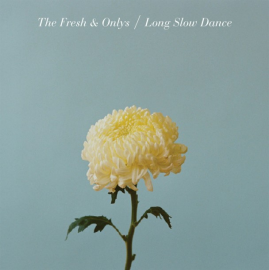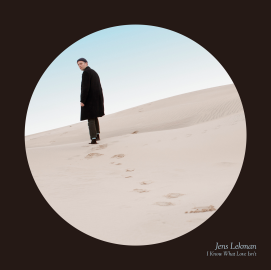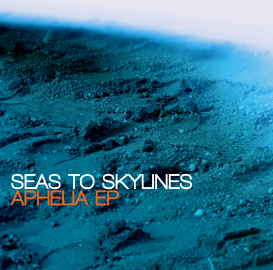Holy Other
Held
Gasps as punctuation, breathless vowels as main ingredients, and growing, fleeing beats as the rise and fall of declaration: this is the music of producer Holy Other. While Held’s source and habit may bear some similarities to other EDM, hip hop and genre in between beatmakers, there is a distance between those acts and this. For Holy Other, words are mostly unnecessary to wind through cavalcades of senses and feelings; the landscape of their sound is one most often defined by displacement, rather than overload. Comparisons to similarly emotional/language-free contemporaries like Burial or Clams Casino are inevitable, but Holy Other keeps things relatively short, refusing to dwell on singular sounds, weaving in and out undefined but recognizable sounds of counterparts. And while the flow of rhythms may seem to exist free from structure or reason, in moments like the shifting tempo of album opener “(W)here” and the thudding, snapping cries and whispers of “Impouring,” these ideas fade. The one that remains is the elusive past tense of the title, the process of “Love[ing]Some1,” the hollow song of the wind and the digital beat of two of the few audible words on the album, “my heart.”
The Fresh & Onlys
Long Slow Dance
Essentially devoid of the background distortion and cathartic rock and roll anthems that their past releases yielded—“Foolish Person” notwithstanding—the band’s principle songwriter, Tim Cohen, boldly establishes a lighter sound with The Fresh & Onlys’ fourth full length release Long Slow Dance. Guiding them through a collection of jangly riffs coated with forlorn sentiment and further away from their murky, lo-fi garage rock beginnings, Cohen leaves their generic ‘60s-inspired garage punk by the wayside and instead pursues a fully-fledged pop tone resembling that of Mitch Easter’s early productions, like Let’s Active’s EP Afoot. Songs like “Long Slow Dance” and “Presence of Mind” explore territory once occupied by early Shins records. Although their technique is far removed from the now passé mid-2000s brand of indie music, they both have the same result, a blissful late summer atmosphere, long and serene, but unforgettable. Cohen is at his best when his song writing focuses on the pleasures of romance instead of just love songs, and Long Slow Dance does exactly that. The album drifts effortlessly and unassumingly, strengthening the argument that great music doesn’t have to sound difficult to make.
Jens Lekman
I Know What Love Isn’t
Jens Lekman’s third record I Know What Love Isn’t is a doggedly stylized, characteristically sweet and self-effacing collection of songs unafraid of exploiting AM radio clichés to advance tales of unrequited feelings and persistent sadness. Detailing the aimless minutiae of a post-breakup summer spent in Melbourne, the 31-year-old Swedish musician draws on a simplified musical palette this time around, but the end result is just as stylized, if not as soaring as his earlier work. I Know What Love Isn’tis an even more distinctive musical universe than Lekman has presented us with before, heavily influenced by smooth, dark and soulful early 1970s R & B. Lekman is like the filmmaker who opts for beautifully painted backdrops rather than on-location realism, giving his latest album a dreamlike sense of heightened reality. Yet this illusion is ultimately brought to life by his wordplay, penchant for bizarre, inventive and above all sincerely-delivered lyrics that recall the infectious, anti-hip earnestness of Jonathan Richman. Not everything resonates as deeply as peppy opener “Erica America,” but when Lekman sings lines like “so let’s get married/ but only for the citizenship,” his irresistible charm wins the day.
Seas to Skylines
Aphelia EP
Seas to Skylines is a group that’s reminiscent of Dashboard Confessional, but with a dash of The Twilight Zone added in for good measure. “Amelia,” the first track on their album, is catchy and accessible; the guitar solos are subtle, and the drumming is far from obnoxious. The second track, “Andromeda,” has a great intro: quietly plucked guitars combine with a sci-fi sliding melody and both lead into the bulk of the song and are rehashed in the bridge and chorus. It makes for a cohesive sound, apart from the second verse which opens with a disjointed tempo change. It’s startling to the trained ear, but provides some interest in an otherwise predictable track. The EP rounds out with “Saturn.” This track is a little too experimental for my tastes: the soundscape created is decidedly other-worldly, complimented by vocal lines with a slight distortion. Despite that, it’s unique enough to be interesting while still being radio friendly – a commendable feat. All in all, this EP is worth a look if only to support a group on the rise – for $2.97, it’s worth the buy.





